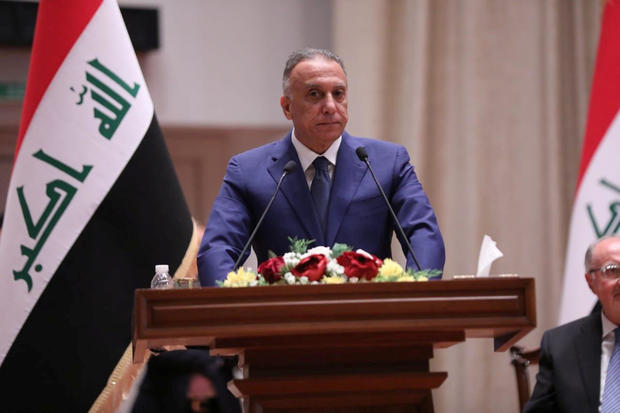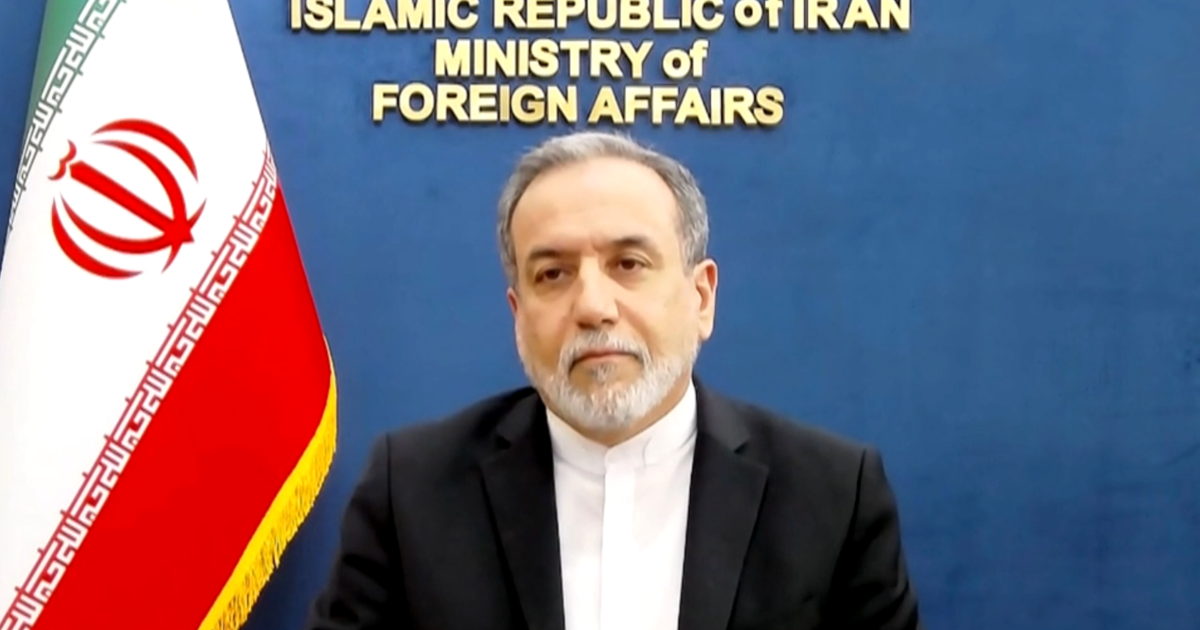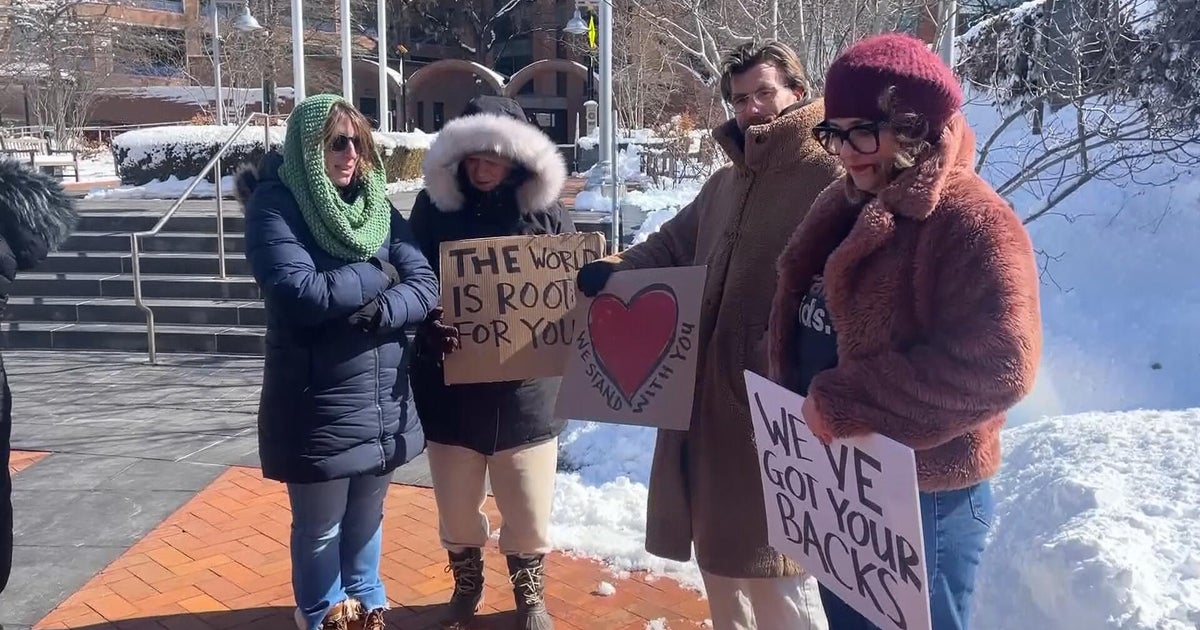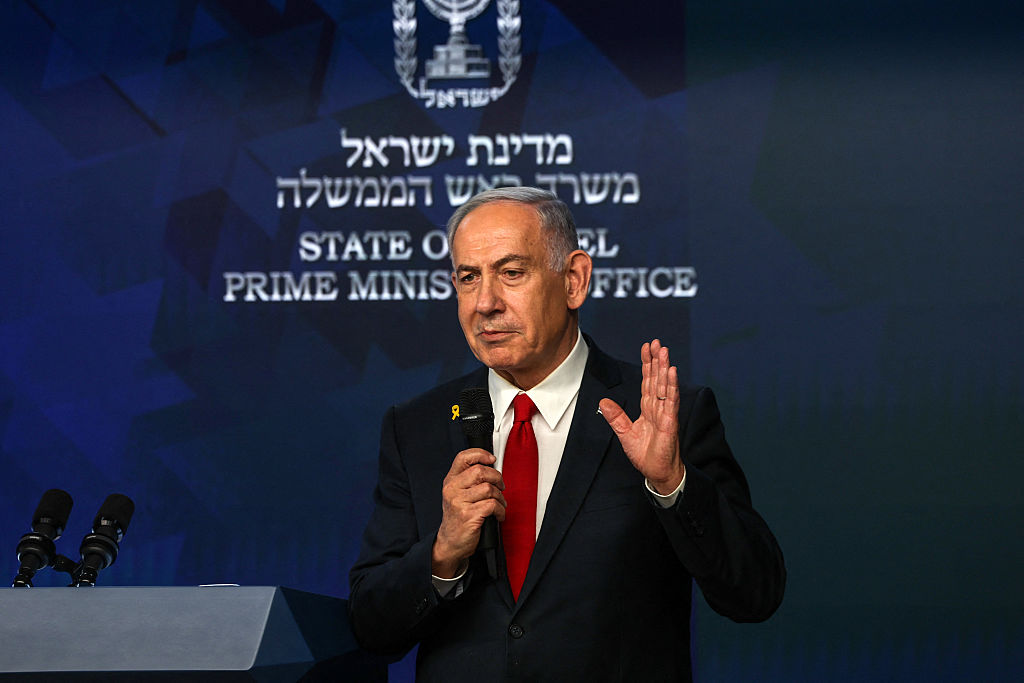Iraq has a new leader. Stuck between Iran and the U.S., he has his work cut out for him.
Erbil — After five months of difficult negotiations, Iraq's parliament approved the intelligence chief Mustafa Al-Kadhimi as the country's new prime minister on Thursday. The long-time spy master, who appears to have U.S. backing, will now lead a government to replace the one forced to resign months ago amid widespread protests.
But his biggest challenge may be convincing a fed-up public that he'll act in their interest before he acts in the interest of the U.S. or any other foreign power.
"This government came as a response to the social, economic and political crises our country is facing," al-Kadhimi told lawmakers Thursday. "It is a government that will provide solutions, not add to the crises."
Iraq is facing a coronavirus-fueled financial crisis, crumbling infrastructure battered by years of war and scant investment, ongoing political instability and the threat of a resurgent ISIS testing its beleaguered security forces.
While addressing those issues, Kadhimi must also prevent his country becoming a literal battlefield in the for-now-still-rhetorical war between its neighbor and ally Iran, and its more distant but more powerful ally the United States.
Many Iraqis would like to see Kadhimi prioritize safeguarding the country's sovereignty and providing better public services.
Since late last year, powerful pro-Iranian militias that operate in Iraq have conducted dozens of attacks against U.S. and international coalition military bases in the country, killing a handful of coalition members and private contractors.
The Trump administration responded by assassinating top Iranian General Qassem Soleimani on the grounds of Baghdad International Airport.
His killing prompted Iran to fire a salvo of 36 missiles at two different U.S. bases in Iraq.
The tension highlights why both Iran and the U.S. need Iraq to be a stable country.
U.S. Secretary of State welcomed the new government Thursday and vowed to help Kadhimi "deliver on his bold agenda for the sake of the Iraqi people."
More material than the tweet of support was the vital good will demonstrated by the Trump administration's decision — announced just hours after Kadhimi's appointment — to grant Iraq a record 120-day exemption from sanctions on the import of Iranian petrochemical products. It will allow the new PM's government to keep buying the Iranian gas that helps generate almost two-thirds of the electricity used in Baghdad.
If he can make good on even most of his promises and avoid the kind of massive political unrest that dislodged the previous cabinet, Kadhimi's government should remain in power at least until the next Iraqi general elections set to take place in early to mid-2021.
If it performs well, he may even gain the trust of a deeply suspicious and divided public. But a closer look at his cabinet suggests the negotiations that yielded his appointment may have given him quite the leeway he would have liked.
Most of the new government minsters weren't his choices, and despite broad claims from lawmakers that Kadhimi had the freedom to pick his own team, the new cabinet's loyalties may prove as cripplingly divided as any other Baghdad has seen since the height of the war in 2003.
One leader of the Baghdad protests that brought the previous government down five months ago told CBS News on Thursday that Kadhimi's initial moves, as he juggles Iraq's interests against those of two bitterly opposed allies, "will be an indication for us: Either the Mustafa that was voted in is our Mustafa, or theirs."




